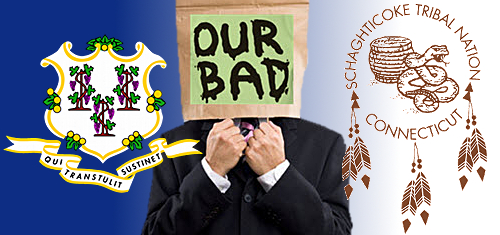 Connecticut government officials have denied a local tribal group’s claims of receiving authorization to run the state’s third casino.
Connecticut government officials have denied a local tribal group’s claims of receiving authorization to run the state’s third casino.
On Tuesday, the Schaghticoke Tribal Nation issued a press release saying it had received state blessing “to pursue the development of a commercial casino in Connecticut.” The tribe said it intended to issue a request for proposals to municipalities regarding “the establishment of a possible casino gaming facility.”
On Wednesday, Connecticut Secretary of the State Denise Merrill rejected the tribe’s claim, saying the state had mistakenly accepted the tribe’s registration of a limited liability corporation because the application did not flag the fact that the registration would violate the special act the state passed last year authorizing the state’s third casino.
That act said only companies formed by the state’s two existing tribal casino operators – the Mohegan and Mashantucket Pequot tribes, which respectively run the Mohegan Sun and Foxwoods Resort casinos – could form an LLC to pursue a third casino. Merrill said the Schaghticoke application “meets the standard to create an LLC but not the requirements of the special act.”
Schaghticoke representatives have yet to comment on the government’s announcement, but this isn’t the first time the state and the tribe have clashed. The Schaghticoke aren’t federally recognized, and the state – wanting to keep a lid on further casino expansion – recently passed new regulations making the task of seeking federal recognition more difficult.
The Mohegan and Mashantucket Pequot tribes have formed a LLC dubbed MMCT to build a jointly run casino at a still undetermined municipality near the Massachusetts border. The tribes see this casino as a way to staunch the flow of Connecticut gamblers headed for MGM Resorts’ new MGM Springfield venue, which is slated to open in Massachusetts in 2018.
MGM has challenged the constitutionality of the 2015 special act, arguing that commercial operators weren’t eligible to apply for Connecticut’s third license, which would be the first not to be built on tribal lands. The special act only authorized the tribes to discuss casino development with municipalities, meaning a second piece of legislation will be necessary before any construction can begin.






